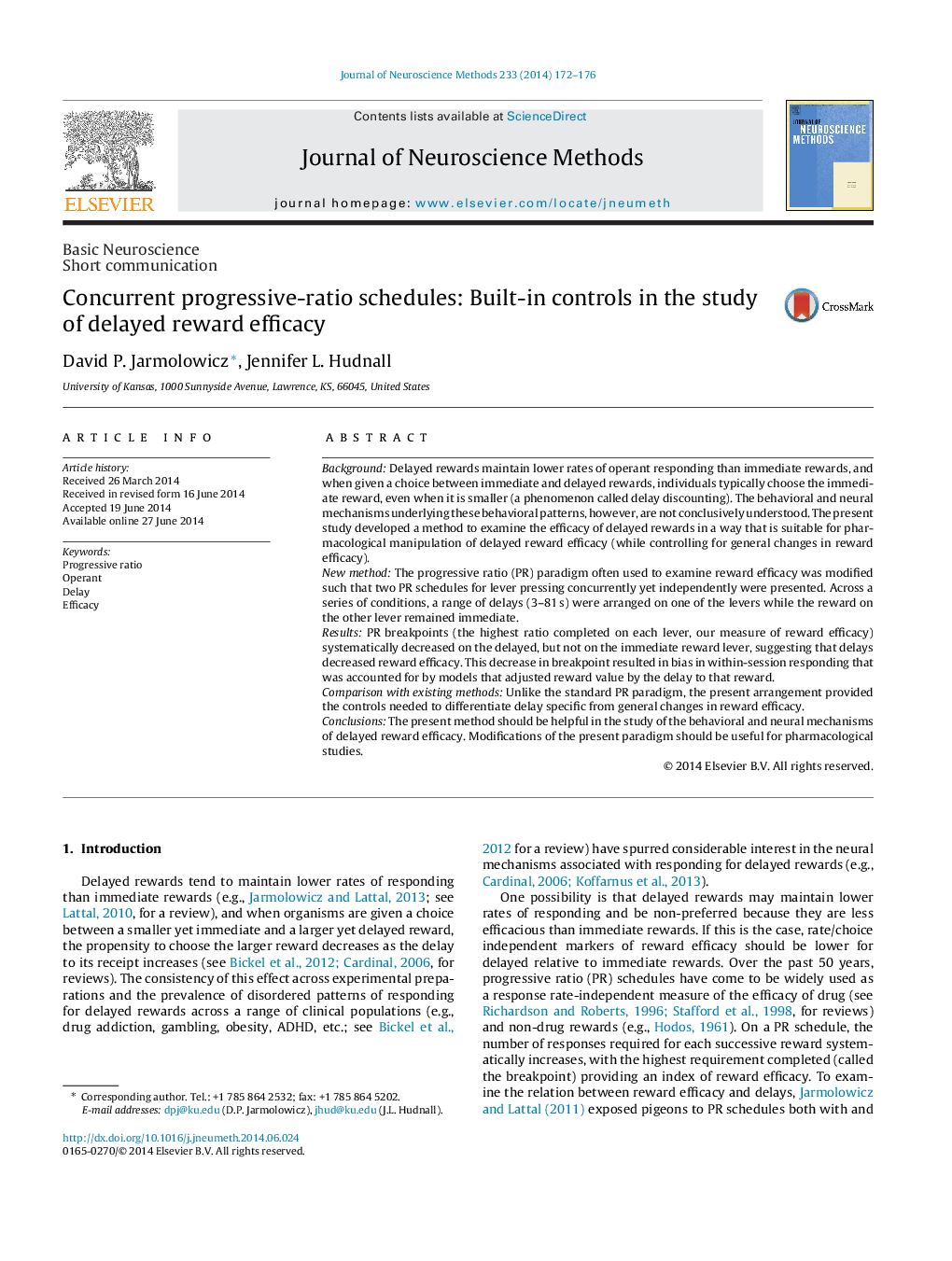| کد مقاله | کد نشریه | سال انتشار | مقاله انگلیسی | نسخه تمام متن |
|---|---|---|---|---|
| 6268507 | 1614636 | 2014 | 5 صفحه PDF | دانلود رایگان |
BackgroundDelayed rewards maintain lower rates of operant responding than immediate rewards, and when given a choice between immediate and delayed rewards, individuals typically choose the immediate reward, even when it is smaller (a phenomenon called delay discounting). The behavioral and neural mechanisms underlying these behavioral patterns, however, are not conclusively understood. The present study developed a method to examine the efficacy of delayed rewards in a way that is suitable for pharmacological manipulation of delayed reward efficacy (while controlling for general changes in reward efficacy).New methodThe progressive ratio (PR) paradigm often used to examine reward efficacy was modified such that two PR schedules for lever pressing concurrently yet independently were presented. Across a series of conditions, a range of delays (3-81Â s) were arranged on one of the levers while the reward on the other lever remained immediate.ResultsPR breakpoints (the highest ratio completed on each lever, our measure of reward efficacy) systematically decreased on the delayed, but not on the immediate reward lever, suggesting that delays decreased reward efficacy. This decrease in breakpoint resulted in bias in within-session responding that was accounted for by models that adjusted reward value by the delay to that reward.Comparison with existing methodsUnlike the standard PR paradigm, the present arrangement provided the controls needed to differentiate delay specific from general changes in reward efficacy.ConclusionsThe present method should be helpful in the study of the behavioral and neural mechanisms of delayed reward efficacy. Modifications of the present paradigm should be useful for pharmacological studies.
Journal: Journal of Neuroscience Methods - Volume 233, 15 August 2014, Pages 172-176
